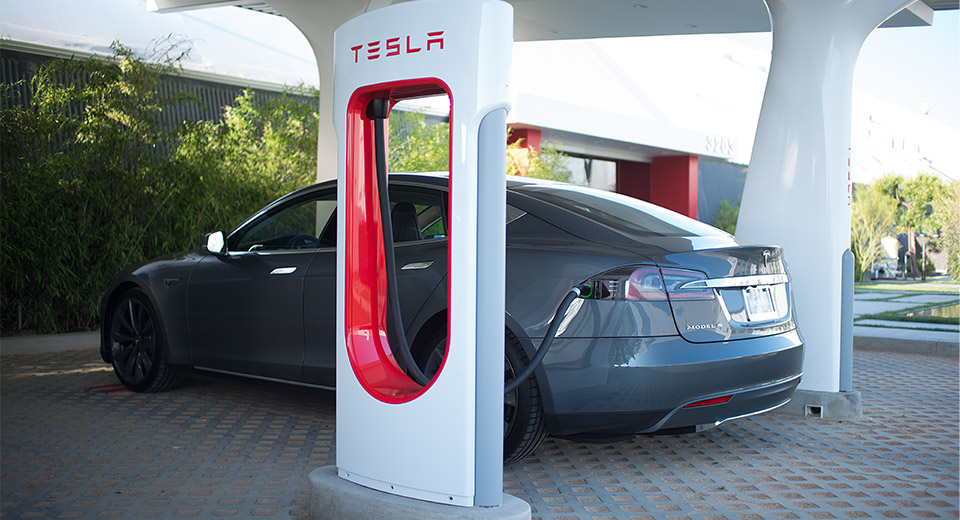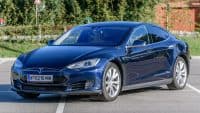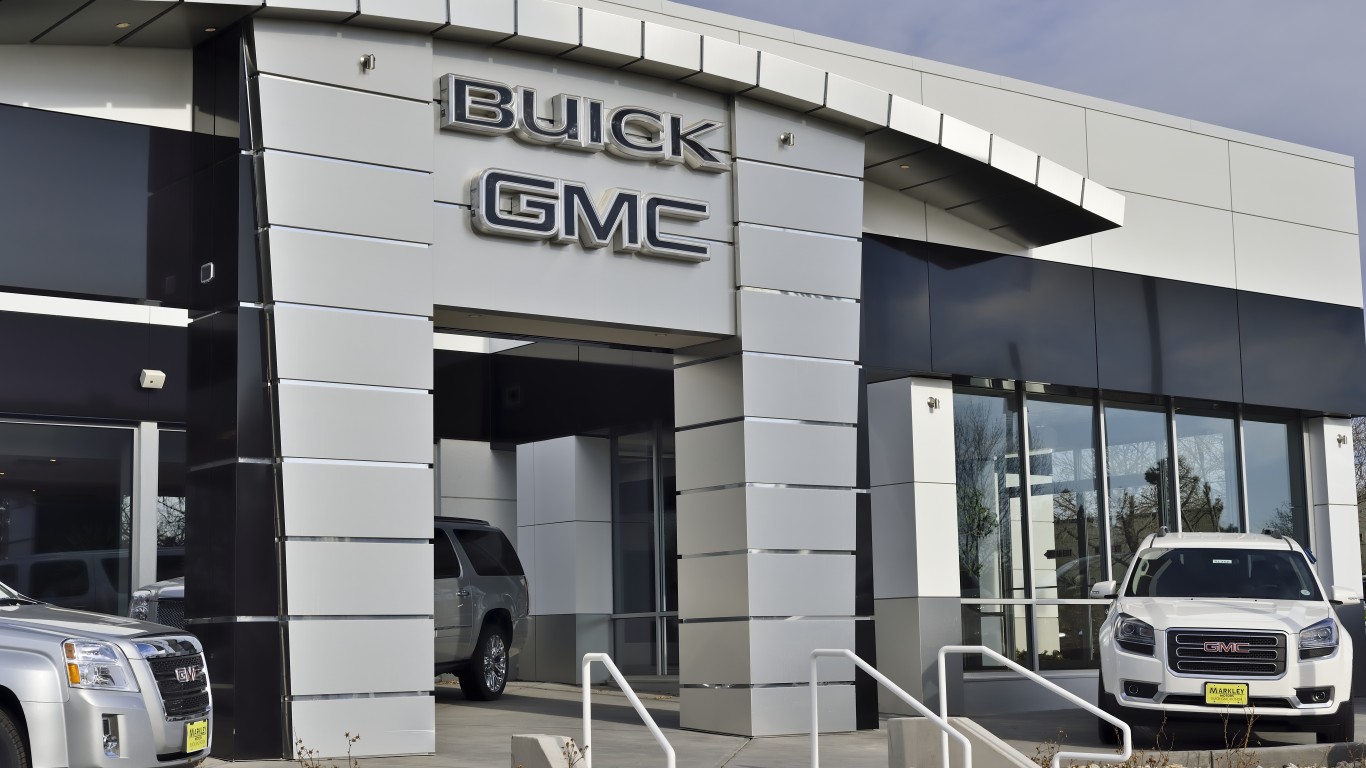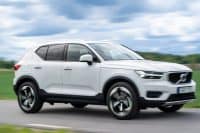The used car market is a critical portion of the auto market. In fact, you simply cannot have a good new car market without there being a solid underlying used car market. One interesting take here is how Tesla Motors Inc. (NASDAQ: TSLA) could greatly expand its reach with the help of the used-car market. Then there is another effort taking place on an experimental basis — the customer referral business.
24/7 Wall St. wants to see what Tesla could really make here from either or both efforts.
A company like Tesla knows that there must be a core after-market just like it has for a new car buying market. Not many buyers want to spend close to $100,000 and have no value at the end of the time they want to drive the car. The company already came out with a trade-back plan that looks and acts like a lease market. Still, what happens with all those Tesla cars that get turned back in?
Edmunds.com has released its own analysis showing that Tesla could boost its traditional base of “wealthy, trend-setting customers” by utilizing the used car market. Edmunds said that it has examined actual registration data of the more than 1,600 Tesla Model S electric cars which have been sold in the U.S. pre-owned market. Edmunds said:
While only 25 percent of new Model S buyers earned less than $100,000 a year, that number rises to 36 percent of all used Model S buyers. Used Model S buyers also skew younger than new Model S buyers. About 10 percent of pre-owned Model S buyers are millennials, age 18-34, compared to just 6 percent of all new Model S buyers.
What stands out here is an easy next business model, even if may seem obvious — a more attainable price tag effectively increases demand from a more diverse customer set. Edmunds’ Jessica Caldwell even said:
A wide-range buyer base is essential for a brand like Tesla that hopes to grow with mainstream shoppers… These findings offer encouragement for Tesla as it prepares to make its biggest move into the mass market with the upcoming Model 3… It’s clear that the concentration of demand for Tesla is spreading beyond California’s borders to other states on the secondary market. While it’s not uncommon to see used luxury vehicles travel out of large flagship hubs, it is unusual to see it happen to this high of a degree.
ALSO READ: The Customer Service Hall of Fame
Another point made was that Elon Musk said earlier this month that Tesla is also appealing to value-minded shoppers. Edmunds noted that a single-motor version of the 70 kWh Model S will sell for about $5,000 less than the dual-motor version, and while it will have a sticker cost of $70,000 the buyers will be paying only about $50,000, not including the $1,170 destination charge, after factoring in incentives and gas savings.
24/7 Wall St. wanted to go beyond what Edmunds is reporting on. After all, the used car market is where there is a very wide degree of disparity when it comes to sale prices via trade-in, selling wholesale, or person to person. The cheapest Tesla cars on the AutoTrader.com website were just under $60,000 for only nine available, in 2012 and 2013 models, out of 290 total Tesla listings – and only three of those listings were from private sellers.
If a business is selling these cars, then there is a profit being made. Why can’t that profit go back to Tesla or to one of Tesla’s partners? The answer is of course much more complicated. First off, most car-makers are not the owner of the actual dealerships. Tesla wants to avoid that or sidestep that, but it is a fight taking place state by state. Then there is always the risk that Tesla could be accused of rigging an after-market, and while it is a low risk on the surface many competing companies would like to steal Tesla’s great press it has benefitted from.
On a referral program, Elon Musk has now said that the company will test a referral model for customers. This will run through October 31 on Model S sedans with the company offering a $1,000 referral discount. Musk noted that it costs roughly $2,000 to sell a car through its stores. The effort seems obvious enough – Tesla has very aggressive sales targets and it wants to lower its accounting line of ‘cost of goods sold.’
Tesla shares were not exactly ramping higher on the news. That may be due to other issues than the news breaks on Wednesday, and other analysts have downgraded Tesla’s stock rating ahead of earnings. Tesla shares closed down 0.3% at $263.96, versus a 52-week trading range of $181.40 to $291.42 and a consensus analyst price target of $287.88.
ALSO READ: The Customer Service Hall of Shame
Tesla has been trying new efforts to get its car sales going further. Its own “Next Billion Tour” is aiming to give new customers test drives and demonstrations from local owners at select locations in more than 25 U.S. cities.
As of that Next Billion press release, Tesla had delivered more than 80,000 electric vehicles to customers globally. That is rather impressive for a company worth $33.3 billion in market cap.
Are You Still Paying With a Debit Card?
The average American spends $17,274 on debit cards a year, and it’s a HUGE mistake. First, debit cards don’t have the same fraud protections as credit cards. Once your money is gone, it’s gone. But more importantly you can actually get something back from this spending every time you swipe.
Issuers are handing out wild bonuses right now. With some you can earn up to 5% back on every purchase. That’s like getting a 5% discount on everything you buy!
Our top pick is kind of hard to imagine. Not only does it pay up to 5% back, it also includes a $200 cash back reward in the first six months, a 0% intro APR, and…. $0 annual fee. It’s quite literally free money for any one that uses a card regularly. Click here to learn more!
Flywheel Publishing has partnered with CardRatings to provide coverage of credit card products. Flywheel Publishing and CardRatings may receive a commission from card issuers.
Thank you for reading! Have some feedback for us?
Contact the 24/7 Wall St. editorial team.



